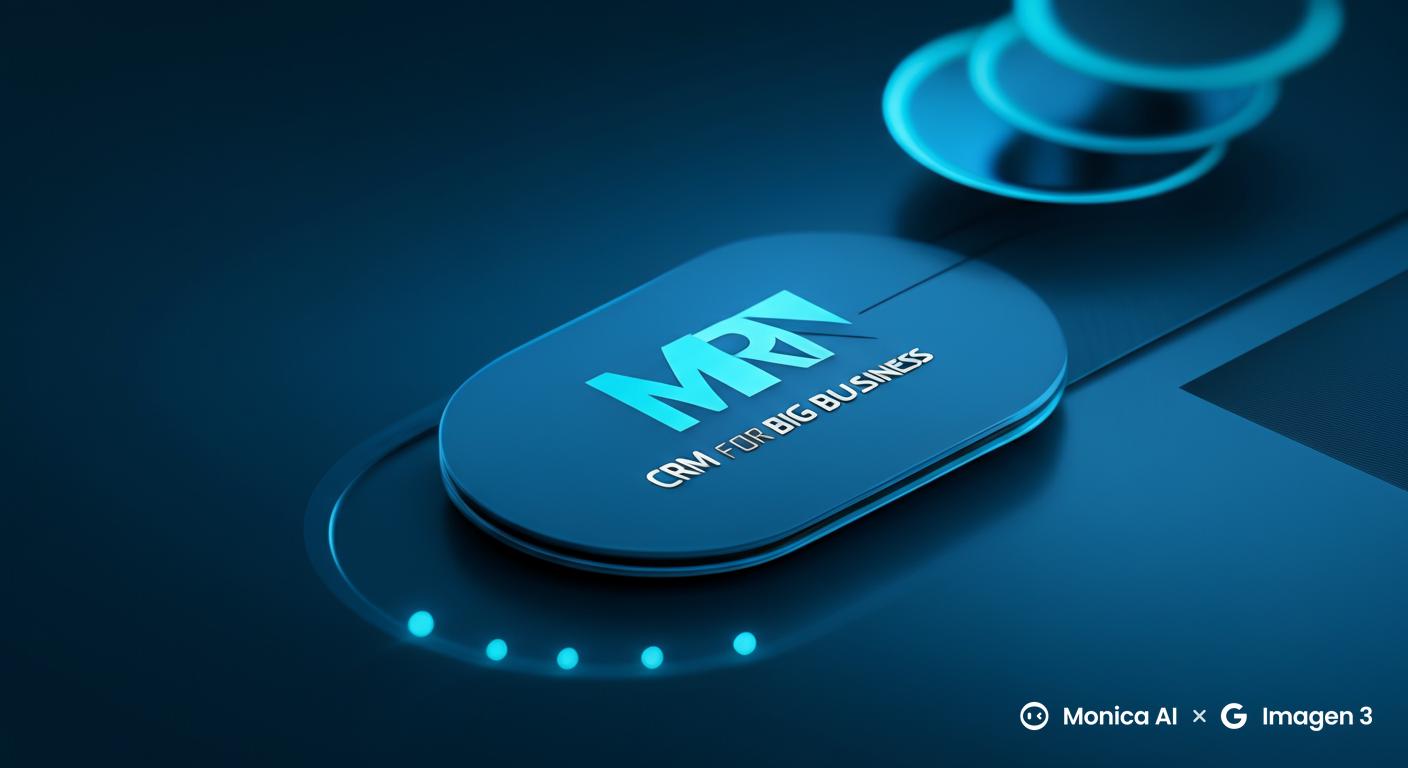Big businesses today don’t just need tools — they need systems. And at the center of every high-performing enterprise is a CRM — Customer Relationship Management platform — built not for small teams but for vast operations, global scale, and thousands (or millions) of customer interactions.
Whether you’re a Fortune 500 retailer, a national bank, or a multinational SaaS provider, your CRM must do more than manage contacts. It must connect data, drive automation, enable intelligence, and support growth at scale.
This article will guide you through:
-
🔹 What makes CRM essential for big business
-
🔹 Key features of enterprise-level CRM platforms
-
🔹 Top CRM solutions for big businesses in 2025
-
🔹 Integration capabilities for complex environments
-
🔹 Real-world use cases across industries
-
🔹 Implementation challenges and how to overcome them
-
🔹 Trends shaping the future of CRM in large companies
Let’s get into the details that matter when building a CRM stack for scale. 🏢💡
Table of Contents
💡 Why Big Businesses Need CRM
In a big business, customer data flows across:
-
Sales teams
-
Customer service centers
-
Marketing departments
-
Product managers
-
Field agents
-
Executive decision-makers
Without a centralized system, this becomes chaos. With CRM, it becomes opportunity.
✅ Benefits of CRM for Big Business:
| Benefit | Value Delivered |
|---|---|
| 🌐 Unified Customer View | One profile per customer across departments & channels |
| ⚙️ Process Automation | Automate repetitive work, standardize workflows |
| 📈 Enterprise Analytics | Track ROI, forecast revenue, and uncover bottlenecks |
| 🔌 Multi-System Integration | Sync with ERP, accounting, HR, CMS, eCommerce |
| 🔐 Compliance & Data Security | Meet industry regulations (GDPR, HIPAA, SOC 2, etc.) |
| 🤖 AI-Driven Personalization | Tailored recommendations and sales paths per customer |
| 🧩 Scalable Architecture | Supports thousands of users and millions of records |
🛠️ Must-Have CRM Features for Big Business
Big businesses require more than just lead tracking or contact storage. They need cross-departmental collaboration, intelligent automation, and enterprise-grade flexibility.
| Feature | Why It’s Essential |
|---|---|
| Multi-Division Account Hierarchy | Handle large clients with multiple branches/sub-accounts |
| Advanced Role Permissions | Granular control over what teams/roles can view and edit |
| Global Support | Multi-language, multi-currency, timezone support |
| AI & Predictive Insights | Forecast pipeline, churn, upsell opportunities |
| Territory & Partner Management | Assign leads/deals by geography or reseller/partner |
| Sales CPQ (Configure Price Quote) | Build complex product quotes with discount logic & approvals |
| Deep Analytics and BI | Custom dashboards, reports, KPIs for leadership |
| Sandbox & Dev Environments | Test features before live deployment |
🏆 Best CRM Platforms for Big Business (2025 Edition)
1. Salesforce CRM (Enterprise & Unlimited)
Overview: The most widely adopted CRM globally, with unmatched customization.
Strengths:
-
Salesforce Einstein (AI insights)
-
AppExchange (thousands of 3rd-party extensions)
-
CPQ, Service, and Marketing Cloud integrations
-
Custom development via Apex and Lightning
Industries: Finance, SaaS, Retail, Telecom, Healthcare
💰 Cost: $150–$300+/user/month (Enterprise & Unlimited tiers)
2. Microsoft Dynamics 365 CRM
Overview: Enterprise CRM with deep Microsoft 365 and Azure integration.
Strengths:
-
Works seamlessly with Teams, Outlook, Excel
-
Predictive lead scoring, sales forecasting
-
Power BI embedded analytics
-
Field service and supply chain modules
Industries: Government, Logistics, Manufacturing
💰 Cost: From $65/user/month; enterprise licensing available
3. SAP Customer Experience (SAP CX)
Overview: Built for manufacturing and B2B2C giants.
Strengths:
-
SAP S/4HANA, ERP, and logistics integrations
-
Real-time commerce and order tracking
-
Consent and preference management for data privacy
-
Deep supply chain visibility + loyalty programs
Industries: Automotive, Consumer Goods, Pharma
💰 Cost: Custom enterprise pricing (often bundled with SAP ERP)
4. Oracle CX Cloud
Overview: Enterprise-grade CRM with advanced marketing and service automation.
Strengths:
-
AI personalization engine
-
Enterprise resource planning (ERP) integration
-
Modular tools: Sales, Service, CPQ, Loyalty, Commerce
-
High-volume campaign automation
Industries: Utilities, Telecom, Healthcare
💰 Cost: Tailored pricing by module and seats
5. Adobe Experience Cloud (w/ Marketo Engage)
Overview: CRM + marketing automation powerhouse for customer journey orchestration.
Strengths:
-
Behavior-driven personalization
-
Enterprise-level campaign automation
-
Integration with Adobe Analytics, Magento, AEM
-
Real-time customer profiles (CDP + CRM)
Industries: Retail, eCommerce, Media
💰 Cost: Premium pricing; modular per feature set
🔗 CRM Integration Must-Haves for Big Business
CRM must connect to your digital backbone:
| Integration Layer | Example Tools | Why It Matters |
|---|---|---|
| ERP | SAP, NetSuite, Oracle ERP | Unified product, inventory, and financial data |
| HRMS | Workday, ADP, BambooHR | Align account teams and HR onboarding |
| eCommerce | Magento, Shopify Plus | Personalized marketing based on purchase behavior |
| Marketing Automation | Marketo, Eloqua, HubSpot | Multi-touch campaigns & journey mapping |
| Support | Zendesk, ServiceNow | Link tickets to accounts for 360° view |
| BI & Data Warehouses | Snowflake, Power BI, Tableau | Advanced analytics, forecasting, attribution |
🧠 Real-World Use Case
Company: Orion Bank (National Banking Chain)
Challenge: Disconnected sales, marketing, and customer service platforms across 11 business units.
Solution:
-
Deployed Salesforce CRM + Service Cloud
-
Integrated with Oracle ERP and call center platform
-
Rolled out AI-based cross-sell recommendations
-
Built real-time executive dashboards
Results:
-
40% faster onboarding of new clients
-
3x increase in upsell success rate
-
Reduced service response time by 57%
❌ CRM Mistakes Big Businesses Should Avoid
| Mistake | Impact |
|---|---|
| Underestimating Data Volume | System lags, reporting failures |
| Over-Customizing Early | Upgrade complications, maintenance overload |
| Lack of User Adoption Plan | CRM becomes shelfware |
| Ignoring Integration Needs | Creates silos, data duplication |
| Choosing Based on Price Only | Poor scalability and high migration costs later |
🧬 CRM Trends for Big Business in 2025
| Trend | What It Means |
|---|---|
| 🧠 AI-Powered Workflow Orchestration | Dynamic task assignments, auto-prioritized leads |
| 🧩 Modular CRM Architectures | Enable business units to scale independently |
| 🌍 Multilingual + Multi-Currency | Serve international markets with native support |
| 🛰️ Voice & Chat-Driven CRM | Integrations with Slack, Alexa, WhatsApp, etc. |
| 🔒 Data Governance + Compliance | GDPR/CCPA-first, with built-in audit tools |
| 🧠 Unified Data Layer (CDP + CRM) | Full customer view across sales, service, and product |
✅ Final Thoughts: CRM is the Operating System of Big Business
If you’re running a big business, CRM is no longer optional — it’s infrastructure. From marketing orchestration to sales automation, real-time insights to global compliance — a properly implemented CRM drives operational excellence and customer success.
When choosing a CRM for big business, ask:
-
Can it scale globally?
-
Will it integrate with our existing stack?
-
Can we build intelligent, automated workflows?
-
Does it support our industry’s compliance needs?
-
Will our teams actually adopt and use it?
“Your CRM is not just software — it’s your company’s memory, brain, and engine.”




